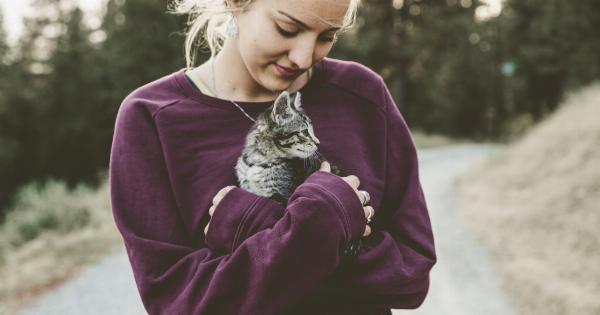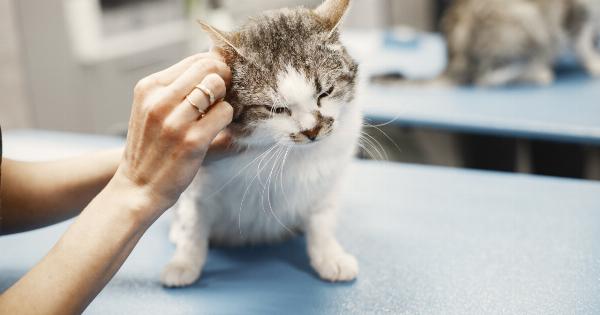Friendship is an essential part of life. Whether we are humans or animals, having friends brings joy, support, and a sense of belonging.
But what happens when our friends are not who they seem to be? This is the case for a hatchling who needs to be aware of her friends. In this article, we will explore the importance of recognizing true friends, spotting red flags, and cultivating healthy friendships.
The power of friendship
Friendship is like a magical potion that adds flavor to our lives. True friends are the ones who stand by us in good times and bad, who offer unconditional love, and bring out the best in us.
They are our confidants, our cheerleaders, and our honest critics. When we have friends who genuinely care about us, we feel supported and understood, leading to better mental and emotional well-being.
For our hatchling, having friends means having companions to explore the world, share laughter, and create cherished memories. Finding friends is an important milestone in her life, as it contributes to her social and emotional development.
The challenge of identifying true friends
But how can the hatchling differentiate between a true friend and someone who might not have her best interests at heart? This is where awareness comes into play.
True friends will always want the best for the hatchling, while others might have ulterior motives or may not be trustworthy.
It is important for the hatchling to pay attention to certain signs that may indicate a person’s true intentions.
These signs can be categorized into red flags, which signal caution and potential harm, or green flags, which indicate positive qualities and genuine care.
Red flags to watch out for
1. Lack of empathy: If the hatchling’s friends consistently show a lack of empathy and do not consider her feelings or needs, it could be a sign that they are not true friends.
True friends are capable of understanding and empathizing with each other.
2. Jealousy and competitiveness: True friends celebrate each other’s successes and support one another.
However, if the hatchling’s friends often display jealousy or try to compete with her, it may indicate a toxic friendship that could hinder her growth.
3. Manipulation: If the hatchling feels manipulated or coerced by her friends, it is a clear red flag. True friends respect boundaries and do not engage in manipulative behavior to get their way.
4. Lack of trustworthiness: Trust is the foundation of any healthy friendship. If the hatchling’s friends repeatedly break promises or betray her trust, it may be time to reevaluate those friendships.
5. Negativity and draining energy: True friends bring positivity and uplift our spirits.
On the other hand, if the hatchling’s friends constantly bring negativity, drama, or drain her energy, it could be an indication of toxic friendships that should be reconsidered.
Green flags of a genuine friendship
1. Trust and reliability: True friends can be trusted and relied upon. They keep their promises, are honest, and have the hatchling’s best interests at heart.
2. Support and encouragement: Genuine friends are cheerleaders who support the hatchling’s dreams and aspirations. They offer encouragement and help her overcome challenges.
3. Respect for boundaries: True friends understand and respect personal boundaries. They do not pressure the hatchling into doing things she is not comfortable with and value her autonomy.
4. Communication and active listening: Healthy friendships are built on open and honest communication. True friends listen attentively to the hatchling’s thoughts, feelings, and concerns.
5. Mutual growth and celebration: Genuine friends help each other grow and celebrate each other’s successes. They are genuinely happy for the hatchling’s achievements.
Cultivating healthy friendships
Now that the hatchling is aware of what to look for in true friends, it is important to cultivate and nurture these friendships:.
1. Be a good friend: The hatchling must lead by example and practice the qualities she seeks in her friends. By being trustworthy, supportive, and respectful, she attracts like-minded individuals.
2. Surround herself with positive influences: The hatchling should seek out friends who bring positivity into her life. This could include friends who share similar interests, values, and goals.
3. Grow together: True friendships are built on mutual growth. The hatchling should encourage her friends to pursue their passions and support them along the way. In turn, they will do the same for her.
4. Communicate openly: Effective communication is crucial in any relationship. The hatchling should express her thoughts and feelings honestly, and encourage her friends to do the same.
5. Trust her instincts: The hatchling possesses natural instincts that can guide her in choosing the right friends. If something feels off or doesn’t align with her values, she should trust her gut and distance herself from toxic individuals.
The joy of true friendships
As the hatchling navigates her journey, she will encounter both positive and negative experiences with friends.
However, with awareness and guidance, she will be able to build lasting and meaningful connections with those who truly care about her well-being.
True friends will be there to celebrate her successes, lend a helping hand during challenging times, and create beautiful memories together. They will support her dreams and be her companions as they continue to explore the world.
By being aware of what makes a true friend and learning to recognize the red flags, the hatchling is equipped to build a circle of friends who will enrich her life and contribute to her growth and happiness.


























